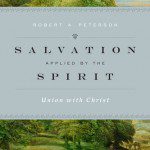As you may have noticed, 2014 has been a slower year at Schaeffer’s Ghost. This is due in large part to several of our writers moving across country, taking new jobs, having children, etc. But that doesn’t mean we’ve stopped reading or watching movies—just that we don’t have as much time to rage into the vacuum about them. (And as with last year’s list, this is not a list of the best books published this year, just the best books off of my Goodreads list.)
Fiction
Wesleyan Anthology of Science Fiction, by Arthur Evans (ed). It might be a bit of a cheat to include a collection of short stories, but in a world of mediocre science fiction anthologies, this one is truly superb. (Not, perhaps, as good as Science Fact/Fiction, but that has been out of print for a while now.) Arranged chronologically and featuring a broad selection of stories from top names in the field and from most sub-genres, this volume really is a must-have. In fact, I would say that if you’re only ever going to read one work of science fiction, it should be Dune. But if you want a taste of the full spectrum of the field that a single book can’t provide, the Wesleyan Anthology is the easiest way to get it.
The Time It Never Rained, by Elmer Kelton. Often (wrongly) held up as a libertarian classic, this novel is about the struggle of Texas farmer Charlie Flagg to survive through years of drought. Of course, there were many farmers in Texas trying to survive the drought, but Flagg was unique—he unbendingly refuses to take government aid. When everyone else went to the relief office for assistance, Flagg stuck to his independence and his own hard work ethic and powered through. Why is this not libertarian? Because despite his “I don’t need no guv’ment!” attitude, Flagg is strongly attached to the land, to his family, and to his community. If anything, this is more of a traditionalist conservative/agrarian book. But however we categorize it, it is an excellent and well-told story.
Foundation Trilogy, by Isaac Asimov. Another that is perhaps cheating a bit since it’s really three books in one, but it’s also three excellent books in one. Besides, no one would complain if I counted Lord of the Rings as one book… Anyway, this is technically a science fiction novelization of Gibbon’s Decline and Fall of the Roman Empire. Asimov encountered Gibbon in college and was immediately hooked (which I can sympathize with). Foundation assumes that as the Galactic Empire draws near to its end, a Gibbon-esque character sees the approaching fall and attempts to mitigate the collapse in order to shorten the coming Dark Age. I would not have thought a book with action crossing hundreds of years and numerous main characters would be so well written, but sure enough Asimov did an excellent job. Of course, if you have to choose between the two you should read Gibbon first…
The High Crusade, by Poul Anderson. Yet another science fiction(ish) book that makes this list. Aliens land on Earth in the 1300s assuming it to be easy prey. But English knights apparently don’t respond well to the vaporization of villagers, and in a surprise attack they manage to charge onto the ship and defeat the aliens (who have become so reliant on their technology they’ve lost the fine art of stabbing each other with swords). But when a surviving alien engages the “automatic return” program with a whole English village on board, well, let’s just say the galaxy may not be quite ready for the advent of chivalry. Don’t get me wrong, this book isn’t really a masterpiece, but Anderson clearly loves him some Middle Ages (he was even a founding member of the “Society for Creative Anachronism“) and as a result this book ends up being a lot of fun. And don’t act like you’ve never wanted to see a nuke launched with a trebuchet…
Nonfiction
This Machine Kills Secrets: Julian Assange, the Cypherpunks, and their Fight to Empower Whistleblowers, by Andy Greenberg. (Reviewed here.) Just what is “leaking” and what does Julian Assange have to do with it? Is revealing government secrets patriotism or treason? Is it even reasonable to expect the government to exercise self-restraint and not spy on the American people? These and other questions are dealt with in this history of leaking from the Pentagon Papers through the rise of Wikileaks.
True Strength: My Journey From Hercules to Mere Mortal—And How Nearly Dying Saved my Life, by Kevin Sorbo. You know how some of seasons 4 and 5 of Hercules: The Legendary Journeys have sort of a weird feel, focus a lot on guest stars and sidekicks, and still don’t manage to have enough Bruce Campbell? Well, it turns out that Kevin Sorbo had multiple strokes and was unable to do even a fraction of the kind of work punching red-togas through walls required. This book gives us all the back story, and ends up being a decently written narrative of Sorbo’s medical and personal ills.
Destiny of the Republic: A Tale of Madness, Medicine, and the Murder of a President, by Candice Millard. Nominally the story of the assassination of President James Garfield, in reality this story is about the rise of modern medicine, the end of 19th century politics (of which Garfield was certainly one of the best examples), and the beginning of a new view of the Presidency. If nothing else, this should interest the Schaeffer’s Ghost crowd given that Garfield is one of our few Presidents who might be labeled “Evangelical Christian.”
The Hiding Place, by Corrie ten Boom. I know I’m coming late to this classic compared to most of the Evangelical world. I had put it off, since most times I’ve seen it in book catalogues or recommended online it has been grouped with various kinds of “inspirational narratives” that really aren’t. I was definitely surprised by the clear prose, thoughtful reflection on truly terrible circumstances, and, well, the overall quality of The Hiding Place. If we had to do some kind of “Top One” list of what I read in 2014, this would probably be the one. For real, go read this.
Theology
Grace and Glory, by Geerhardous Vos. This collection of sermons is excellent—not to mention a much easier read than Vos’s better known work Biblical Theology (which I also read this year and which you’ll note is not making this list). Vos as a preacher is clear (despite being a native Dutch speaker), rich, deep, and devotional. You can find most of the sermons from Grace and Glory for free here, along with some other good stuff.
Sample quote:
Being told, therefore, that it was the “Son of Man” who came to seek and to save, our first thought surely should be of that unspeakable grace of our Lord, who, being rich as God alone can be rich, yet for our sake became poor as sinful man only can be poor, that by his poverty we might be made rich.
Calvin’s Ecclesiastical Advice, by John Calvin. This is an eclectic collection of Calvin’s writings on the church. Maybe in normal circumstances it wouldn’t have made the “best of” list, but it actually was useful while we were picking a new church after a cross-country move. While there are a few places where I’m going to disagree with Calvin (I lean in a more Baptist direction polity-wise), overall this was still an excellent collection and one worth having on your shelf. This book includes some of Calvin’s thoughts on church discipline, idols and images, marriage, and a host of dogmatic/polemical issues (such as whether one ought pray to God the Father, or Christ the Son, or both, or neither).
Sample quote:
Now, since we know, through the preaching of the gospel, that Jesus Christ our Lord—who is true God and true man—has, by means of the cross, satisfied his Father for our sins by this oblation of his body and blood, and that by our participation in them it has pleased God to make it possible for us to live in Christ and him in us, we realize all the more what excellent benefits are offered to us in the communion of the body and blood of the Lord. (167)
A Neglected Grace: Family Worship in the Christian Home, by Jason Helopoulos. While I have problems with the idea of a “Christian home,” this was nevertheless an excellent book on what family worship (which I have no problems with) should look like. Helopoulos both explains why we should worship as a family and gives some practical suggestions as to how we ought to do so. This quick read is definitely worth your time.
Sample quote:
Is family worship always easy? No. How can it be with young, healthy, active boys at home? But leading our families in worship is a responsibility that is given to us. And make no mistake, it is a joyful responsibility that is given to us. (30)
Dr. Coyle Neal is Assistant Professor of Political Science at Southwest Baptist University in Bolivar, MO.













